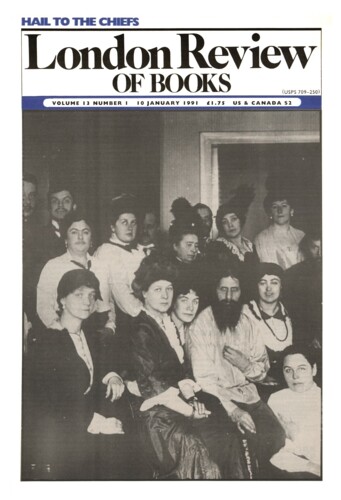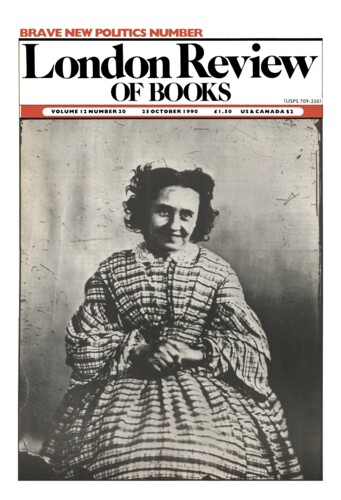Funny Old Fame
Patrick Parrinder, 10 January 1991
Once upon a time, before the Channel Tunnel was built, there were two contemporary French novelists. Georges Perec died in 1982 at the age of 45, and nobody in England who was not a French specialist had ever heard of him. With Philippe Sollers it was different. Editor of the avant-garde theoretical journal Tel Quel, and associate of literary and psycho-analytic thinkers such as Barthes, Kristeva and Lacan, his was a name of which no self-respecting British intellectual could afford to remain entirely ignorant – though his novels, so far as I can discover, were neither translated nor read. But as Sollers grew older he abandoned his youthful Maoism to become a worshipper of American capitalism and, finally, some sort of Catholic mystic. Tel Quel changed its name to L’ Infini. And, since fame is capricious, in the last years of Mrs Thatcher’s reign it was Perec, not Sollers, who – with the publication of David Bellos’s translation of Life: A User’s Manual – found a keen British audience.’





